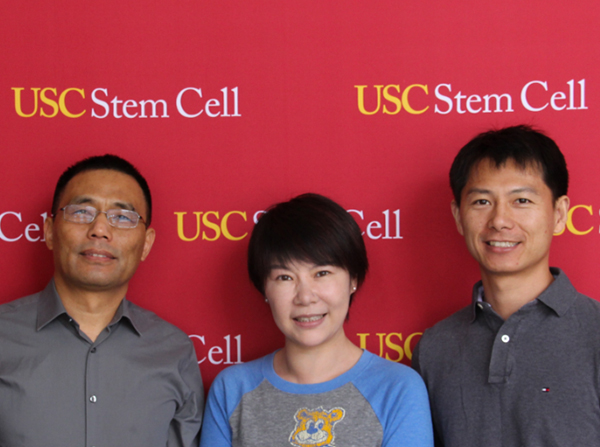To foster this spirit of unexpected discovery, Chinese biotechnology entrepreneur Min Zhou has given an unrestricted gift of $500,000 to Ying’s lab, which studies how stem cells self-renew or differentiate into many specialized cell types.
Zhou has chosen to provide unrestricted support for this pioneering research, because of her first-hand understanding of the serendipitous nature of early scientific discovery. She is both a medical doctor who has performed postdoctoral research at UCLA, and the founder of Kedgene Biology, a biotech company developing therapies for cancer and other diseases.

From left, Qi-Long Ying, Min Zhou, and Ying Lab postdoc Shi (Steve) Yue (Photo by Cristy Lytal)
“I hope that our gift can help a distinguished scientist like Professor Qi-Long Ying accelerate breakthrough findings in stem cell research,” said Zhou. “I hope that human beings can benefit from such scientific endeavors as soon as possible.”
Throughout his career, Ying has built an impressive track record of unexpected discoveries, including finding a way to grow embryonic stem cells in a Petri dish using a specific mixture of chemicals, and producing genetically modified rats for studying human diseases.
“For this type of high-risk and high-reward research, it’s very difficult to get NIH grant funding,” said Ying. “And that’s why it’s so important to get support from philanthropists like Min Zhou. This type of unrestricted support allows us to explore any area that we think is important.”